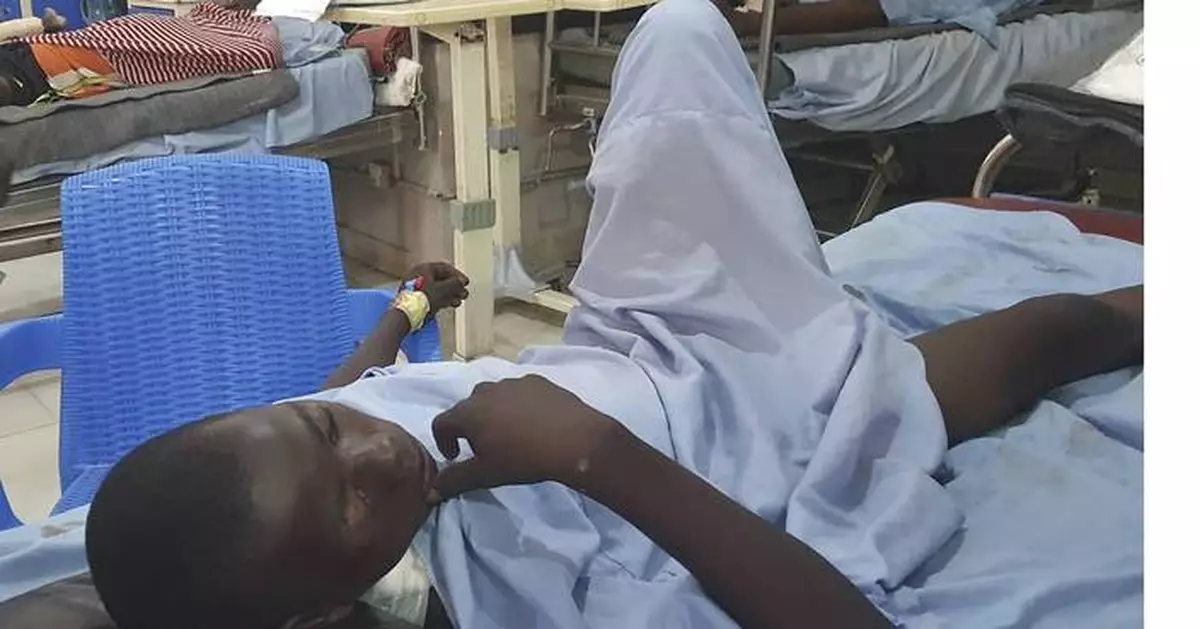MAIDUGURI, Nigeria (AP) — Female suicide bombers targeted a wedding, a funeral and a hospital in coordinated attacks in northern Nigeria that killed at least 18 people, local authorities said Sunday.
The first bomber detonated during a marriage celebration in the northeastern town of Gwoza, Barkindo Saidu, director-general of the Borno State Emergency Management Agency, told reporters.
“Minutes later, another blast occurred near General Hospital,” Saidu said, and the third bomber at the funeral service was disguised as a mourner. Children and pregnant women were among those killed. At least 30 others were wounded, and Saidu said injuries included abdominal ruptures and skull fractures.
No one immediately claimed responsibility for the the attacks. Borno state has been heavily affected by the insurgency launched in 2009 by the Boko Haram Islamic extremist group.
In the past, Boko Haram has used women and girls in suicide bombings, prompting suspicions that some attackers come from the many thousands of people the extremists have kidnapped over the years, including schoolchildren.
Nigerian President Bola Tinubu in a statement called the attacks “desperate acts of terror” and “an isolated episode."
The insurgency, which has spilled across borders around Lake Chad, has killed over 35,000 people, displaced over 2.6 million and created a massive humanitarian crisis.
Boko Haram, with one branch allied to the Islamic State group, wants to install an Islamic state in Nigeria, West Africa’s oil giant of 170 million people divided almost equally between a mainly Christian south and a predominantly Muslim north.
The resurgence of suicide bombings in Borno raised significant concerns about the security situation in the region.
Authorities imposed a curfew in the city. Gwoza is a few kilometers from Chibok, where 276 schoolgirls were abducted in 2014. Nearly 100 of the girls are still in captivity.
Since then, at least 1,500 students have been kidnapped across Nigeria as armed groups find the practice a lucrative way to fund their criminal activities and take control of villages.

An injured victim of a suicide bomb attack receives treatment at a hospital in Maiduguri, Nigeria, Sunday, June 30, 2024. At least 18 people were killed and 30 injured, including 19 seriously, in coordinated attacks by suspected female suicide bombers in Nigeria's northeastern city of Gwoza on Saturday, local authorities said, raising security concerns in a region which has been at a center of Islamist insurgency. (AP Photo/Joshua Omiri)
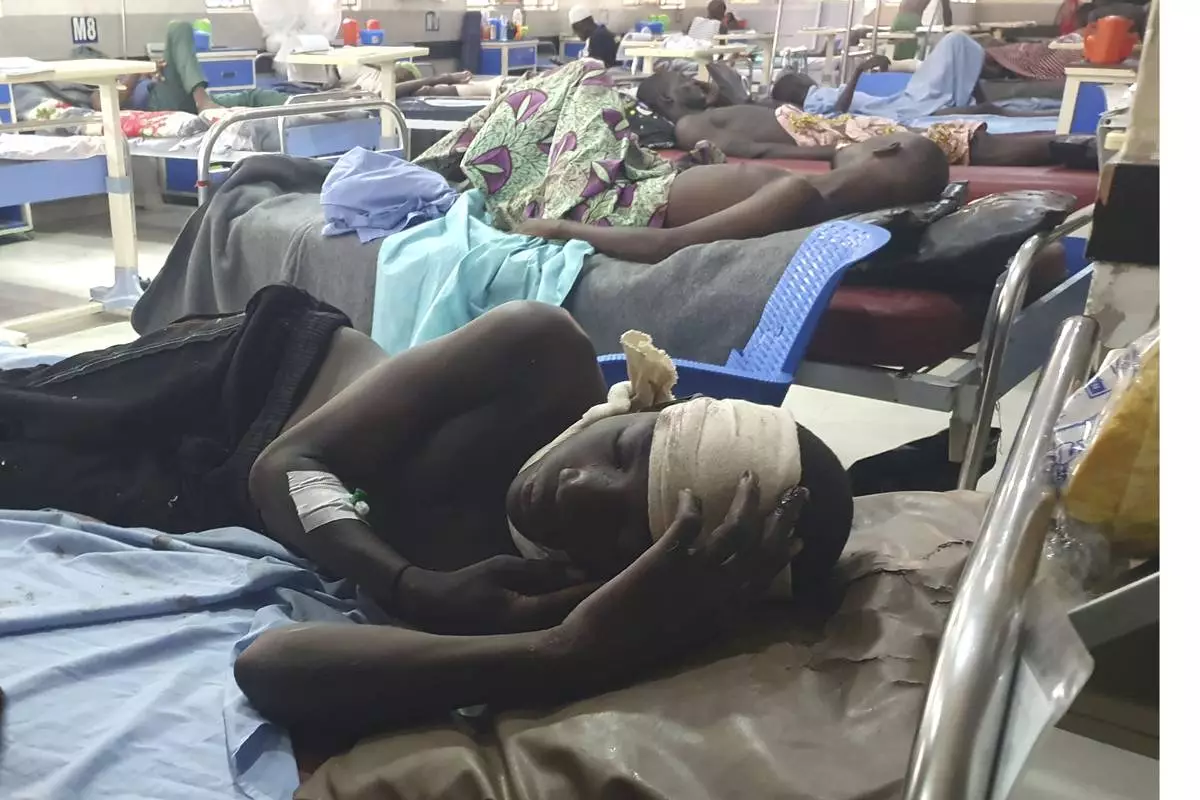
Injured victims of a suicide bomb attack receive treatment at a hospital in Maiduguri, Nigeria, Sunday, June 30, 2024. At least 18 people were killed and 30 injured, including 19 seriously, in coordinated attacks by suspected female suicide bombers in Nigeria's northeastern city of Gwoza on Saturday, local authorities said, raising security concerns in a region which has been at a center of Islamist insurgency. (AP Photo/Joshua Omiri)
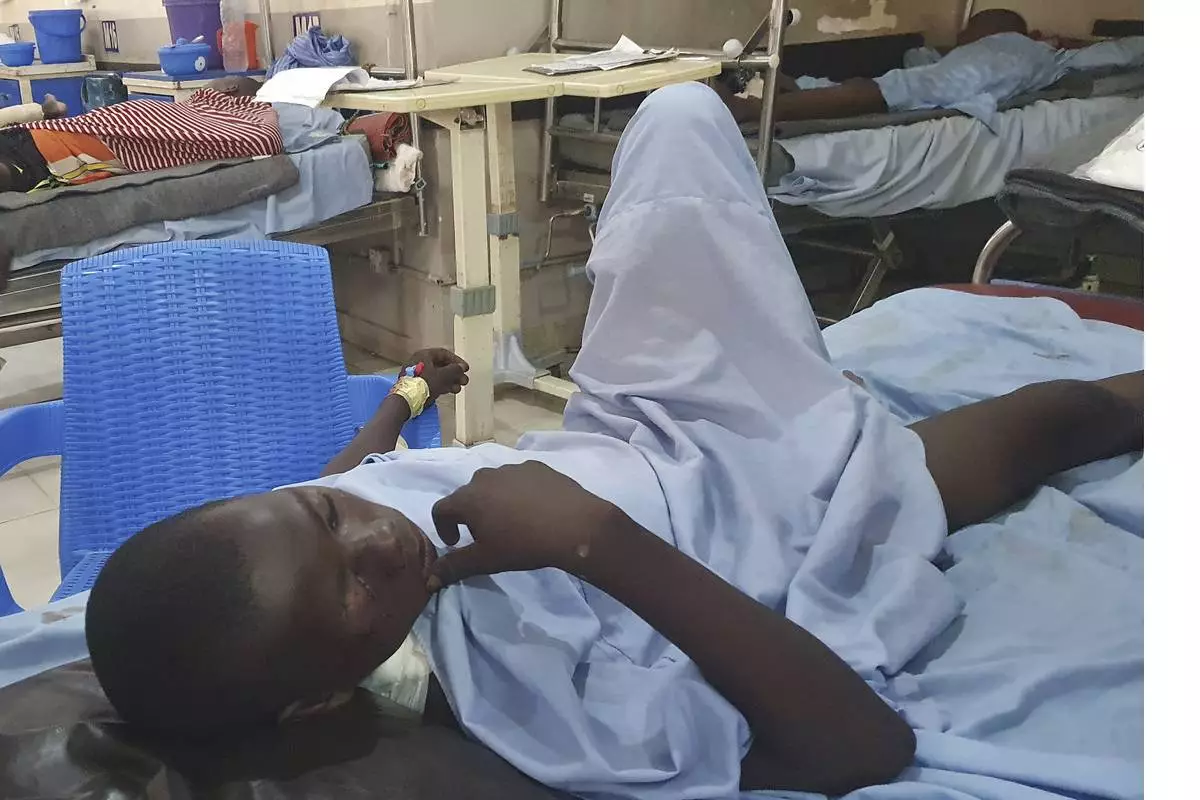
Injured victims of a suicide bomb attack receive treatment at a hospital in Maiduguri, Nigeria, Sunday, June 30, 2024. At least 18 people were killed and 30 injured, including 19 seriously, in coordinated attacks by suspected female suicide bombers in Nigeria's northeastern city of Gwoza on Saturday, local authorities said, raising security concerns in a region which has been at a center of Islamist insurgency. (AP Photo/Joshua Omiri)
Hurricane Beryl's explosive growth into an unprecedented early whopper of a storm shows the literal hot water the Atlantic and Caribbean are in right now and the kind of season ahead, experts said.
Beryl smashed multiple records even before its major-hurricane-level winds approached land. The powerful storm is acting more like monsters that form in the peak of hurricane season thanks mostly to water temperatures as hot or hotter than the region normally gets in September, five hurricane experts told The Associated Press.
Beryl set the record for earliest Category 4 with winds of at least 130 mph (209 kilometers per hour) — the first-ever Category 4 in June. It also was the earliest storm to rapidly intensify with wind speeds jumping 63 mph (102 kph) in 24 hours, going from an unnamed depression to a Category 4 in 48 hours.
Late Monday, it strengthened to a Category 5, becoming the earliest hurricane of that strength observed in the Atlantic basin on record, and only the second Category 5 hurricane in July after Hurricane Emily in 2005, the National Hurricane Center said. Category 5 storms have winds exceeding 157 mph (250 kph).
Beryl is on an unusually southern path, especially for a major hurricane, said University at Albany atmospheric scientist Kristen Corbosiero.
It made landfall Monday on the island of Carriacou with winds of up to 150 mph (240 kph), and is expected to plow through the islands of the southeast Caribbean. Beryl may stay near its current strength for another day before it begins weakening significantly, according to the late Monday forecast.
“Beryl is unprecedentedly strange,” said Weather Underground co-founder Jeff Masters, a former government hurricane meteorologist who flew into storms. “It is so far outside the climatology that you look at it and you say, ‘How did this happen in June?’”
Get used to it. Forecasters predicted months ago it was going to be a nasty year and now they are comparing it to record busy 1933 and deadly 2005 — the year of Katrina, Rita, Wilma and Dennis.
“This is the type of storm that we expect this year, these outlier things that happen when and where they shouldn't,” University of Miami tropical weather researcher Brian McNoldy said. “Not only for things to form and intensify and reach higher intensities, but increase the likelihood of rapid intensification. All of that is just coming together right now, and this won't be the last time.”
Colorado State University hurricane researcher Phil Klotzbach called Beryl “a harbinger potentially of more interesting stuff coming down the pike. Not that Beryl isn't interesting in and of itself, but even more potential threats and more — and not just a one off — maybe several of these kinds of storms coming down later.”
The water temperature around Beryl is about 2 to 3.6 degrees (1 to 2 degrees Celsius) above normal at 84 degrees (29 Celsius), which “is great if you are a hurricane,” Klotzbach said.
Warm water acts as fuel for the thunderstorms and clouds that form hurricanes. The warmer the water and thus the air at the bottom of the storm, the better the chance it will rise higher in the atmosphere and create deeper thunderstorms, said the University at Albany's Corbosiero.
Sea surface temperatures in the Atlantic and Caribbean “are above what the average September (peak season) temperature should be looking at the last 30-year average,” Masters said.
It's not just hot water at the surface that matters. The ocean heat content — which measures deeper water that storms need to keep powering up — is way beyond record levels for this time of year and at what the September peak should be, McNoldy said.
“So when you get all that heat energy you can expect some fireworks,” Masters said.
This year, there's also a significant difference between water temperature and upper air temperature throughout the tropics.
The greater that difference is, the more likely it becomes that storms will form and get bigger, said MIT hurricane expert Kerry Emanuel. “The Atlantic relative to the rest of the tropics is as warm as I've seen,” he said.
Atlantic waters have been unusually hot since March 2023 and record warm since April 2023. Klotzbach said a high pressure system that normally sets up cooling trade winds collapsed then and hasn't returned.
Corbosiero said scientists are debating what exactly climate change does to hurricanes, but have come to an agreement that it makes them more prone to rapidly intensifying, as Beryl did, and increases the strongest storms, like Beryl.
Emanuel said the slowing of Atlantic ocean currents, likely caused by climate change, may also be a factor in the warm water.
A brewing La Nina, which is a slight cooling of the Pacific that changes weather worldwide, also may be a factor. Experts say La Nina tends to depress high altitude crosswinds that decapitate hurricanes.
La Nina also usually means more hurricanes in the Atlantic and fewer in the Pacific. The Eastern Pacific had zero storms in May and June, something that's only happened twice before, Klotzbach said.
Globally, this may be a below average year for tropical cyclones, except in the Atlantic.
On Sunday night, Beryl went through eyewall replacement, which usually weakens a storm as it forms a new center, Corbosiero said. But now the storm has regained its strength.
“This is sort of our worst scenario,” she said. “We're starting early, some very severe storms. .. Unfortunately, it seems like it's playing out the way we anticipated.”
Seth Borenstein has been covering hurricanes for nearly 35 years and is on X at @borenbears
The Associated Press’ climate and environmental coverage receives financial support from multiple private foundations. AP is solely responsible for all content. Find AP’s standards for working with philanthropies, a list of supporters and funded coverage areas at AP.org.
Read more of AP’s climate coverage at http://www.apnews.com/climate-and-environment
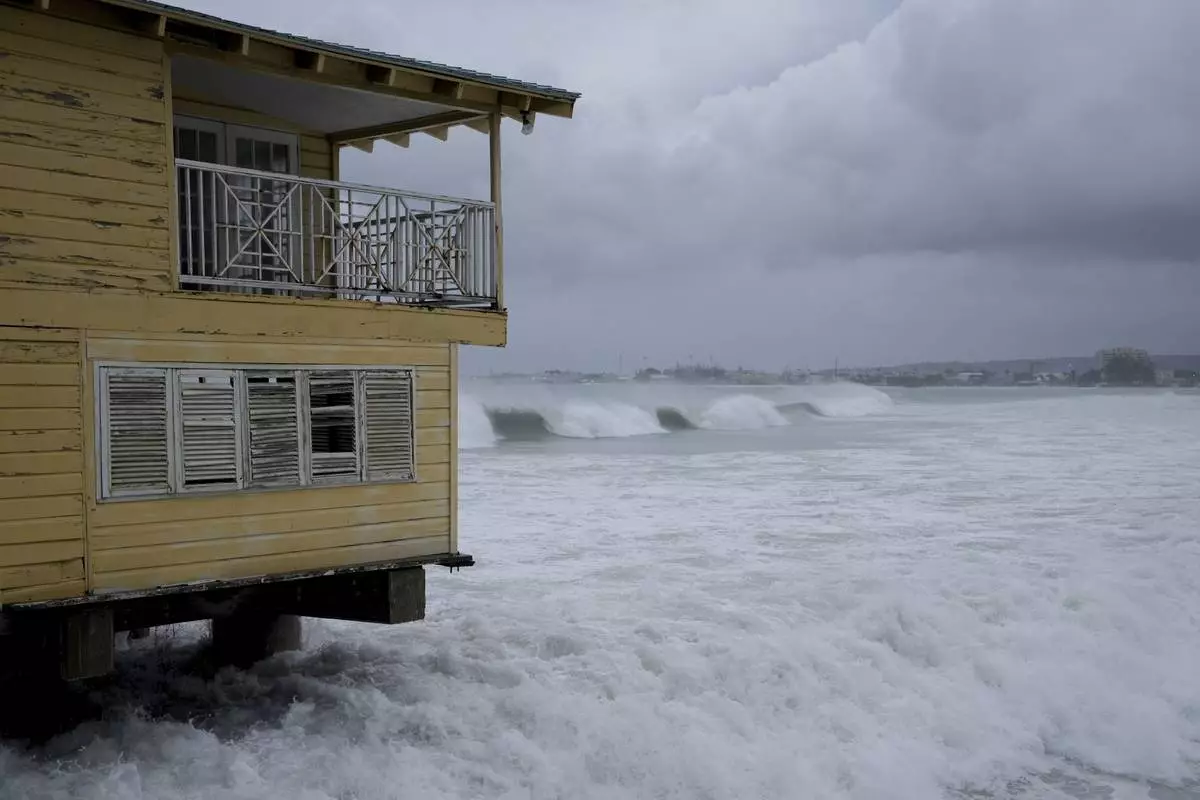
Waves batter a pier during the pass of Hurricane Beryl in Bridgetown, Barbados, July 1, 2024. (AP Photo/Ricardo Mazalan)
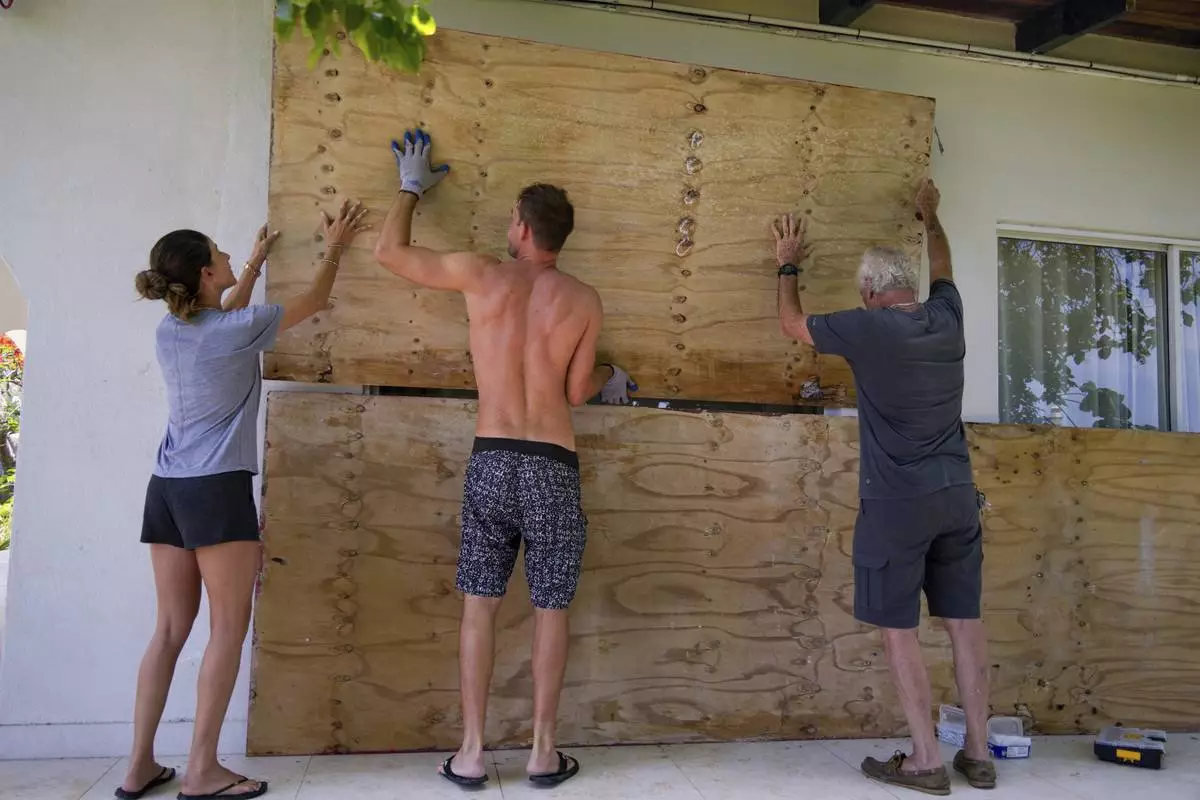
FILE - Residents cover the windows of their home in preparation for the arrival of Hurricane Beryl in Bridgetown, Barbados, June 30, 2024. (AP Photo/Ramon Espinosa, File)
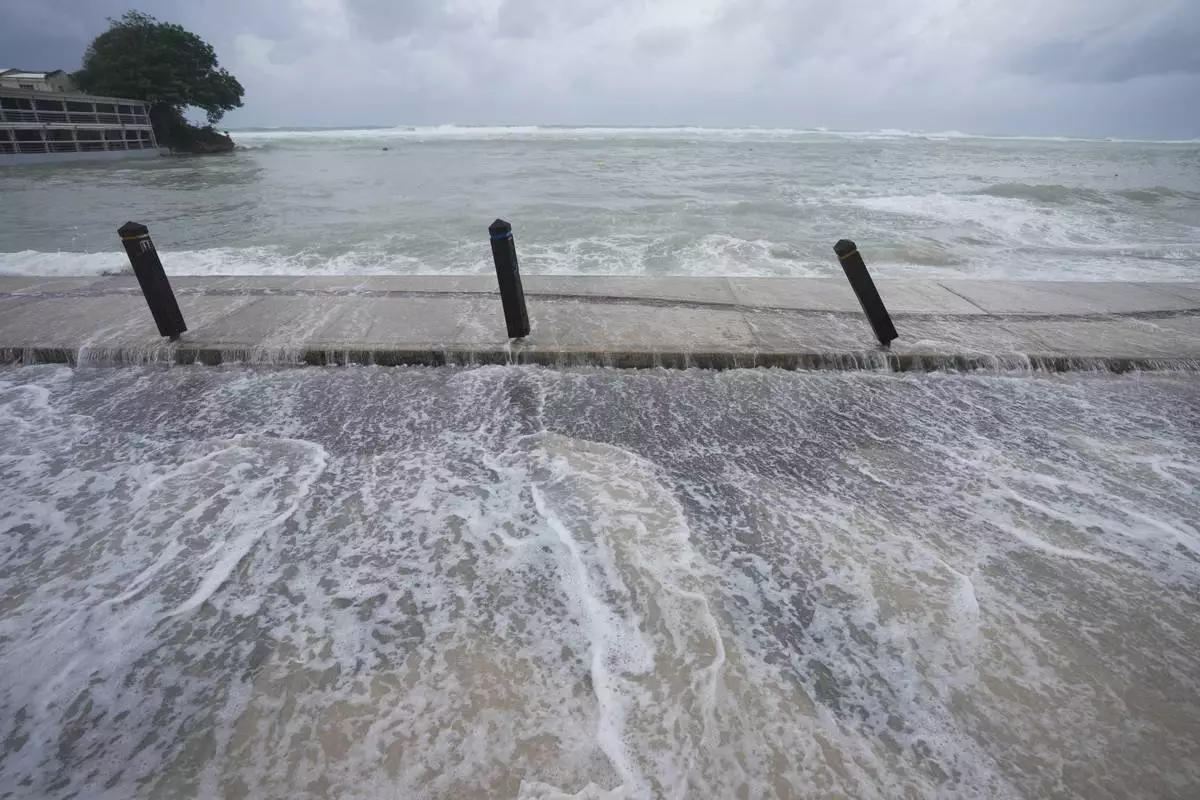
The sea floods the street after Hurricane Beryl passed through St. Lawrence, Barbados, July 1, 2024. (AP Photo/Ricardo Mazalan)
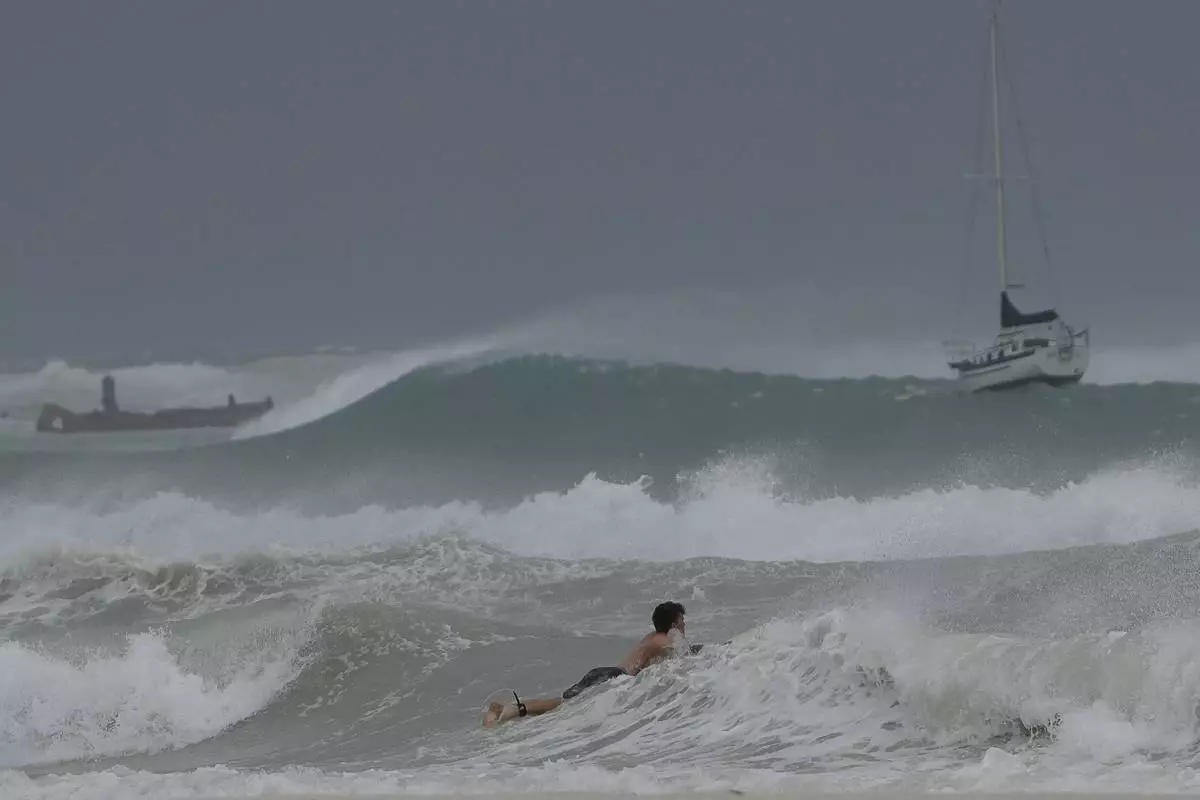
A surfer braves the waves in Carlisle Bay as Hurricane Beryl passes through Bridgetown, Barbados, July 1, 2024. (AP Photo/Ricardo Mazalan)





